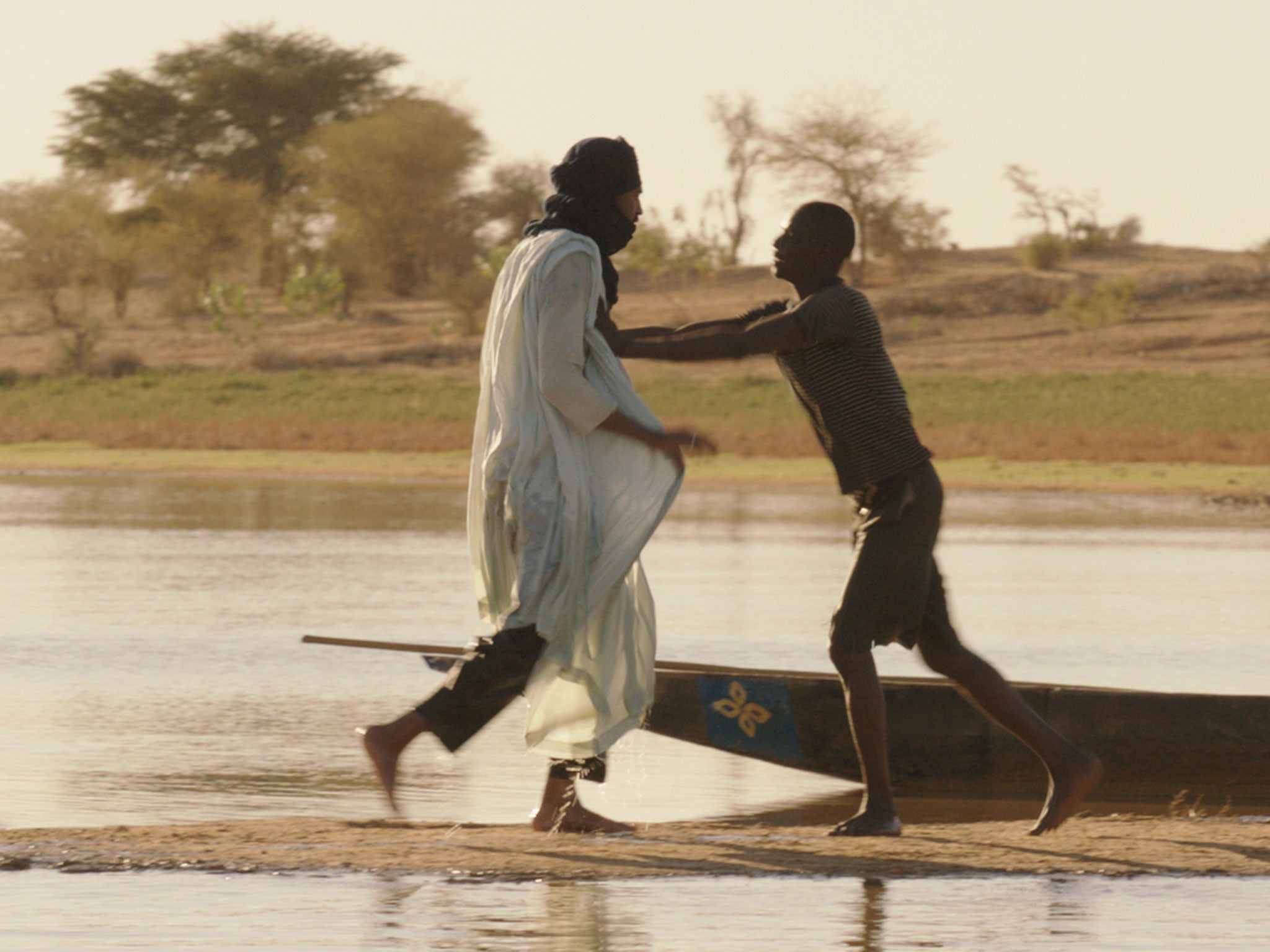Timbuktu, film review: Satire combined with lyricism and a sense of mounting tragedy
(12A) Abderrahmane Sissako, 96 mins. Starring: Ibrahim Ahmed, Abel Jafri, Toulou Kiki

Your support helps us to tell the story
From reproductive rights to climate change to Big Tech, The Independent is on the ground when the story is developing. Whether it's investigating the financials of Elon Musk's pro-Trump PAC or producing our latest documentary, 'The A Word', which shines a light on the American women fighting for reproductive rights, we know how important it is to parse out the facts from the messaging.
At such a critical moment in US history, we need reporters on the ground. Your donation allows us to keep sending journalists to speak to both sides of the story.
The Independent is trusted by Americans across the entire political spectrum. And unlike many other quality news outlets, we choose not to lock Americans out of our reporting and analysis with paywalls. We believe quality journalism should be available to everyone, paid for by those who can afford it.
Your support makes all the difference.Abderrahmane Sissako's superb film about life in a city under the control of violent Islamists works on many different levels. It has some of the same comic absurdism that ran through Chris Morris's Four Lions, but the satire is combined with lyricism and a sense of mounting tragedy.
"In the land of Islam, it is forbidden to do any old thing," one character observes early on as the extremists set about banning everything in Timbuktu, from football to smoking and playing music. They demand men roll up the legs of their trousers and women fishmongers are forced to wear gloves, which makes handling filleting knives all but impossible.
The extremists are first seen behaving like teenage boys, letting off their guns at wildlife and old statues. They turn out to be very immature, with a limited frame of reference when it comes to religion, justice or anything else. The main plot line involves a day-dreaming, music-loving herder who owns eight cattle. He is devoted to his wife and daughter but after his beloved cow, GPS, is shot by a local fisherman, he becomes involved in a dispute with deadly consequences – one in which the fundamentalists' attempts at law enforcement backfire entirely.
Sissako's approach isn't polemical. He tells his story in a wry and detached fashion. The extremists aren't unsympathetic. They have their own struggles, with engines that break down or the desire one or two hold for smoking the occasional cigarette. When Timbuktu was programmed at a festival in Belgium earlier this year, the festival had to be abandoned because of a terrorist threat. This, though, is a film that should be seen as widely as possible.
Join our commenting forum
Join thought-provoking conversations, follow other Independent readers and see their replies
Comments